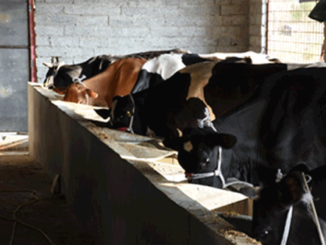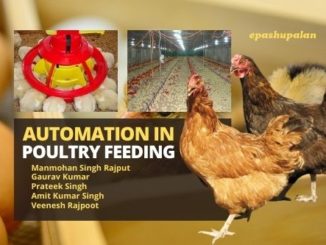“If an apple a day keeps doctors away, an egg a day will keep diseases at bay”
For years, eggs have been held up as a powerhouse of protein. The reputation has been due to its exceptional nutritional profile. One of the most nutrient dense natural foods, extremely versatile, environmentally sustainable and affordable animal-source protein, loaded with 13 different vitamins and minerals, omega-3 fatty acid, antioxidants and many more. The potency of this perfect package is unbeatable. From improving brain function, supporting physical health to aiding a child’s growth, the egg can do it all.

Eggs for all: Nature’s perfect package
Eggs are inexpensive and contain all essential amino acids, like milk has a high biological value and is also considered as the only source of albumin. The humble egg is the new, reinstated wonderfood, with high energy benefits including most of our daily supplement requirements. Eggs deliver a wide range of health benefits, helping to improve energy production, muscle strength, brain health, skin health, and immune system functionality.
- Nutritious treat: Egg can act as an important staple in a well-balanced diet. One large boiled egg has about 70 calories and contains vitamin A, B5, B12, B6, D, E, K and minerals like folate, phosphorus, selenium, calcium, zinc and 6 gm of protein and 5 gm of heart-healthy fat (unsaturated fat).
- Choline rich: One hard boiled egg contains 417 mg choline. Choline is a water-soluble vitamin that is used to build cell membranes and helps produce signalling molecules in the brain.
- Lutein and Zeaxanthin: Lutein and zeaxanthin are two newly-recognized nutrients that have put eggs in the “functional foods” category. A functional food is one that provides health benefits beyond its basic nutrient content.
- Vitamin A: Eggs are also abundant in vitamin A, an important vitamin required for a clear vision. Being rich in these two nutrients, egg yolk acts as a helpful antioxidant that reduces the risk of cataracts and muscular degeneration in the eyes.
- Storehouse of proteins and amino acids: Egg is considered as a golden standard of protein. An egg contains about 6 g of quality protein(nearly half of which is found in the yolk) which is useful in weight management, increasing muscle mass, lowering blood pressure and helping our bones as well.
- High levels of Omega-3: Eggs help improve levels of Omega-3 essential fats that play an active role in the functioning of heart, brain health and protecting eyes.
- Satiety and weight management: An egg is a perfect combination of fats and proteins makes eggs very healthy and they help to reduce hunger pangs. Including 1-2 eggs in breakfast can help to lose weight as it boosts and stabilises the metabolism.
- Source of Vitamin D: Eggs are also among the few foods that can provide you with Vitamin D, E and K.
Why be ordinary, when you can be egg-ordinary!
- Eggs raises high density cholesterol(good) cholesterol
- Eggs do not increase blood cholesterol and it was found that a higher egg intake was associated with lower risk of a myocardial infarction.
- Eggs promote brain health
- Being rich in antioxidants, boosts immunity, protects the eyes, heart, guards against early ageing and some cancers.
- Eggs promotes healthy hair and nails
- 90% of calcium phosphorus and folate(for bones,teeth) present in the yolk
- An egg prevents chances of cataract and protects eye sight
- Being a source of folic acid, eggs prevent several congenital abnormalities like spina bifida during pregnancy
An egg-cellent way to improve maternal and child nutrition
The reality that India is confronted with is a sad irony- despite being the second-largest food producer in the world, malnutrition, especially amongst children, remains a large roadblock in the country’s journey forward. In the 2020 Global Hunger Index, India ranks 94th out of the 107 countries with a score of 27.2, India has a level of hunger that is serious. Despite decades of investment to tackle malnutrition, India’s malnutrition rates are still one of the most alarming in the world. In a report published by UNICEF, it was noted that malnutrition was the cause of 69% of deaths of children under the age of five in India. Also, according to the third National Family Health Survey, every second child under the age of three is undernourished. The crisis of child malnutrition in India has often been attributed to historical antecedents such as poverty, inequality and food shortage. All surveys indicate that India is slipping into a vicious cycle of malnutrition.
India is the third largest egg producer in the world yet the consumption remains far low against the recommendations of the Indian Council of medical research (ICMR). With 103.93 Bn egg production in 2019, India’s per-capita availability of eggs was 79 eggs per annum against the recommended 180 eggs by ICMR. Scientists say that the initial 1,000 days of an individual’s lifespan, from the day of conception till he or she turns two, is crucial for physical and cognitive development. Eggs have enormous potential to improve maternal and child nutrition during the first 1,000 days of life. Small but mighty, eggs possess almost all the micronutrients an infant needs for growth, in addition to high-quality protein, and are an important constituent of early diets as a complementary food. People often tend to discard consumption of eggs due to the many misconceptions like eggs can lead to an unhealthy rise in cholesterol levels. However, the American Heart Association dispelled this myth and suggested eating one egg every day without fearing any unhealthy consequences. Unlike green revolution, in the new millennium, India’s food basket has changed. Eggs and chicken are some of the fastest growing foods around the world and in India too. It’s called ‘Livestock Revolution’. In order to be a healthy ‘Bharat’ we should explore healthier alternatives for the meal to combat malnutrition. More significantly, there is a strong correlation between the consumption of eggs and better nutritional status in most states, particularly among younger children. There are many advantages to incorporating eggs as a part of diet like:
- Longer shelf life : Eggs have relatively longer shelf-life unlike milk or banana, in rural areas, with decentralised kitchens and where refrigeration facilities are not possible, this is a pretty useful thing and could boost rural employment
- Non adulterable: Eggs cannot be diluted or adulterated like milk or dals
- Easy monitoring: Provision and distribution of eggs can be monitored easily
- Effortless cooking: Eggs can be cooked easily and incorporated into a wide variety of dishes means that eggs can likely be integrated into traditional cultural dishes with minimal effort.
- Nutrients in a nutshell: Eggs are almost pure protein, of very high quality. They also provide virtually the entire adequate. Intake, for young children, of vitamin B12 and choline
- Crucial for Pregnancy: The essential fatty acid content of eggs may be especially important in pregnancy.
One example of how to increase egg consumption and consequently improve the nutrition of children is for governments to promote “an egg a day.” India experimented with an “an egg a day” program that mandated all schools to provide a mid-day egg to each student with the intent of improving child health. In this way, regardless of income, each child who attends school is provided with a source of protein and other key nutrients. This can also help to increase school attendance and child academic performance as well.
Tamil Nadu was the first state to include eggs in the mid-day meals of students in government schools. Understanding the nutrient potential of eggs, later, Madhya Pradesh government and now the Karnataka government has also decided to serve eggs in mid-day meals in seven districts to mitigate malnourishment. Under the national action plan for eggs and poultry 2022 for doubling farmer’s income eggs have been considered as a component to fulfill the objective of protein enriched food requirement of the growing population. Today in 2021, India is not just fighting COVID-19 outbreak but is also battling existing undernutrition in the country. Children continue to be the world’s hope for a brighter, safer future and there must be a global effort in eradicating a problem that stops them from reaching their maximum levels of physical and mental potential. Because eggs can, to some extent, offer a solution to hunger and malnutrition in developing regions, extension agents, governments, the private sector should work together to decrease the cost of eggs and promote egg consumption. Also, there is a strong need that governments should recognize the important influence they can have on improving nutrition and public health and therefore subsidize egg production. All in all, eggs can or should be the entire and an easy solution in combating malnutrition and hunger in developing regions.






Be the first to comment